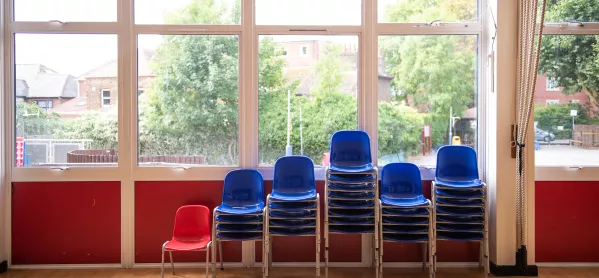2m pupils could be persistently absent, Labour warns

More than 2 million children could be regularly missing school by 2025 if the number of pupils absent from classrooms continues on its current trajectory, Labour has claimed.
The shadow education secretary, Bridget Phillipson, said tonight that the country could see a “lost generation of schoolchildren” and accused the government of failing to “get to grips with the epidemic of persistent absence”.
The party plans to highlight the issue during Wednesday’s King’s Speech debate in Parliament.
New analysis from the Labour Party suggests that 2,064,014 primary and secondary state-funded school pupils could be persistently absent from school in 2025-26.
A pupil is defined as persistently absent if they miss 10 per cent or more of their education, measured by sessions of half days.
- Teacher shortages: Labour still “working on” how to recruit 6,500 more teachers
- School attendance: Pupil absence spikes despite attendance drive
- De Souza: Heads can’t tackle absence crisis on their own
Across both the autumn and spring terms last year, more than 1.5 million children (21.5 per cent), were persistently absent from both primary and secondary school - almost double the number during the same terms five years ago, when 729,875 (10.7 per cent) were recorded as being persistently absent.
And data for spring term 2023 shows that almost 140,000 pupils were severely absent - missing 50 per cent of sessions or more - up from 57,167 in autumn and spring term 2018-2019.
Tackling school absence ‘mission critical’
Labour said it has “projected the rise in children persistently absent if the numbers continue to rise at the current rate”.
Its projections predict the number of pupils classed as persistently absent from school rising to 1.8 million in 2024-25 and to just over 2 million the following year.
However, despite the major increases in recent years, persistent absence rates did actually fall in the autumn and spring terms of 2022-23 when compared with the same period in 2021-22.
While 21.2 per cent of pupils were recorded as persistently absent for the two terms last year, this was a slight decrease on the 22.3 per cent recorded as persistently absent in the same terms in 2021-2022.
Since the pandemic absence rates have risen despite government efforts to tackle the crisis. Last month the Department for Education announced the creation of four new attendance hubs to help reduce absences, bringing the total to 14.
Ms Phillipson said that tackling persistent absence “would be mission critical for Labour in government”.
She added: “The Conservatives have no plans to get to grips with the epidemic of persistent absence, and the stakes couldn’t be higher: we could see a lost generation of schoolchildren without firm action.
“Tackling that epidemic starts with Labour mending the broken relationship between schools, families and government.”
A Department for Education spokesperson said: “Though the vast majority of children are in school and learning, we are taking action to tackle absence in school because we know the damage it can have on a child’s education, wellbeing and future life chances.
“We are providing vital support for around 400,000 pupils through our attendance hubs, and our Attendance Action Alliance is supporting delivery of practical support to schools to further raise school attendance. We also published new guidance that places an expectation on schools to use data to identify and support at-risk pupils.
“This is on top of our direct work with persistently and severely absent children and their families, where trained mentors are providing tailored support to overcome barriers and support these children back into school.”
The King’s Speech in Parliament on Tuesday morning, setting out the government’s planned legislation, mentioned the prime minister’s plan for an Advanced British Standard post-16 qualification.
However, the chair of the Commons Education Select Committee, Robin Walker, said he was disappointed that the government had not included a plan to create a statutory register of children not in school in its legislative agenda.
You need a Tes subscription to read this article
Subscribe now to read this article and get other subscriber-only content:
- Unlimited access to all Tes magazine content
- Exclusive subscriber-only stories
- Award-winning email newsletters
Already a subscriber? Log in
You need a subscription to read this article
Subscribe now to read this article and get other subscriber-only content, including:
- Unlimited access to all Tes magazine content
- Exclusive subscriber-only stories
- Award-winning email newsletters



